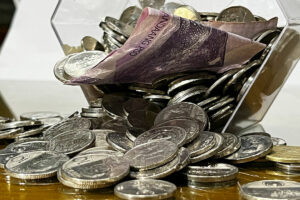YIELDS on the term deposits offered by the Bangko Sentral ng Pilipinas (BSP) inched lower on Wednesday amid dovish signals from the US Federal Reserve chief, which boosted rate cut expectations in the world’s largest economy.
The central bank’s term deposit facility (TDF) attracted bids amounting to P250.521 billion on Wednesday, below the P260 billion on the auction block and the P268.701 billion for a P250-billion offer seen a week ago as the longer tenor went undersubscribed.
Broken down, tenders for the seven-day papers reached P132.134 billion, higher than the P120 billion auctioned off by the central bank but lower than the P134.407 billion in bids for the P130-billion offering seen the previous week.
Banks asked for yields ranging from 6.49% to 6.525%, slightly lower than the 6.495% to 6.53% band seen a week ago. This caused the average rate of the one-week deposits to slip by 0.06 basis point (bp) to 6.5099% this week from 6.5105% previously.
Meanwhile, bids for the 14-day term deposits amounted to P118.387 billion on Wednesday, lower than the P140-billion offering as well as the P134.294 billion in tenders for the P120 billion placed on the auction block on July 10.
Accepted rates for the two-week tenor were from 6.5245% to 6.568%, a tad wider than the 6.535% to 6.569% margin seen a week ago. With this, the average rate for the 14-day term deposits decreased by 0.83 bp to 6.5463% from the 6.5546% logged in the prior week’s auction.
The BSP has not auctioned off 28-day term deposits for more than three years to give way to its weekly offerings of securities with the same tenor.
The term deposits and the 28-day bills are used by the central bank to siphon off excess liquidity from the financial system and to better guide market rates.
Term deposit yields inched down amid Fed rate cut bets following dovish remarks from the US central bank chief, Rizal Commercial Banking Corp. Chief Economist Michael L. Ricafort said in a Viber message.
Fed Chair Jerome H. Powell said on Monday the three US inflation readings over the second quarter of this year do “add somewhat to confidence” that the pace of price increases is returning to the Fed’s target in a sustainable fashion, remarks that suggest a turn to interest rate cuts may not be far off, Reuters reported.
“In the second quarter, actually, we did make some more progress” on taming inflation, Mr. Powell said at an event at the Economic Club of Washington. “We’ve had three better readings, and if you average them, that’s a pretty good place.”
Last week, the Labor department reported that its consumer price index fell in June from the month before, the first month-to-month decline in four years. Coupled with a reading of wholesale inflation a day later, economists now estimate the gauge the Fed uses for its inflation target, due out later this month, will show yearly price increases have eased closer toward 2%.
The betting among investors has tilted strongly towards the Fed starting rate cuts in September. Changes to the policy statement in July could provide a strong signal of that by updating how inflation is described and assessing how recent data has added to policy makers’ confidence that the pandemic-era outbreak of inflation has subsided.
After rapidly lifting interest rates starting in 2022 to combat the worst inflation outbreak since the 1980s, the Fed has left its benchmark policy rate unchanged since last July in a range of 5.25%-to-5.5%.
As Mr. Powell spoke, financial markets all but abandoned what had been rising bets on a July rate cut. Traders continue to expect a September rate cut followed by additional cuts in November and December, bringing the policy rate down to 4.5%-4.75% by yearend.
Mr. Ricafort added that expectations of a BSP rate cut by next month also caused TDF yields to go down on Wednesday.
BSP Governor Eli M. Remolona, Jr. has said the Monetary Board could fire off its first rate cut in over three years at its Aug. 15 review on expectations of easing inflation this semester.
He said the BSP could slash borrowing costs by up to 50 bps this year. — Luisa Maria Jacinta C. Jocson with Reuters
